
Simple Minds were one of Britain’s biggest musical exports in the 1980s and early 1990s, nothing up huge hits on both sides of the Atlantic and soundtrack massive Hollywood movies. It was all a long way from their punk roots, as frontman Jim Kerr acknowledged in 2004, when he looked back over the band’s journey from the clubs of Glasgow to the stadiums of the world.

“When we started our first arena tour of Europe, in the early eighties, I remember doing the soundcheck and thinking: ‘Yes, this will work, but wouldn’t it be great if we had some songs that were fucking built for these things’. That was probably the first time we started to get calculating in that sense.”
Simple Minds frontman Jim Kerr is acknowledging a pivotal moment in Simple Minds’ career. Rock stars will cite all manner of influences on their songwriting: love, longing, lust et cetera. But cavernous concrete halls? Not really, of course. But Simple Minds saw their chance and went for it. Rock music in the 80s was defined by scale as much as by anything else. It was the era of big arena rock that grew into massive stadium rock. And Simple Minds’ resonating riffs and swirling, widescreen songs rose to the challenge.
“We looked at the other bands that were playing these places and thought: ‘How do they do it?’” Kerr continues. “And it’s all about the big gesture. You can’t be cool in those places. There were people who were giants compared to us but they died there. Elvis Costello didn’t work, Van Morrison didn’t work, Paul Weller didn’t work.”
But Simple Minds worked. As did the smarter 70s survivors and their other great contemporaries from the 80s, U2. “The first time I saw U2 I had no doubt that they would become what they are now. Because they wanted it. They wanted it every bit as much as Madonna wanted it. And it wasn’t just them, it was their management, their road crew, everyone around them. It was both intimidating and inspiring to see. It wasn’t just to be rich or famous or whatever, it was because it was there to be had. They smelt it and went for it.
“To a degree it was the same with us. It was like, ‘America is giving you a shot, better go. Might have to compromise’. And being the kind of band we were, it was, ‘Compromise? No way’. But in fact you’re compromising every day of your life. You walk across the street and you compromise. It’s knowing when to compromise and how to compromise.”
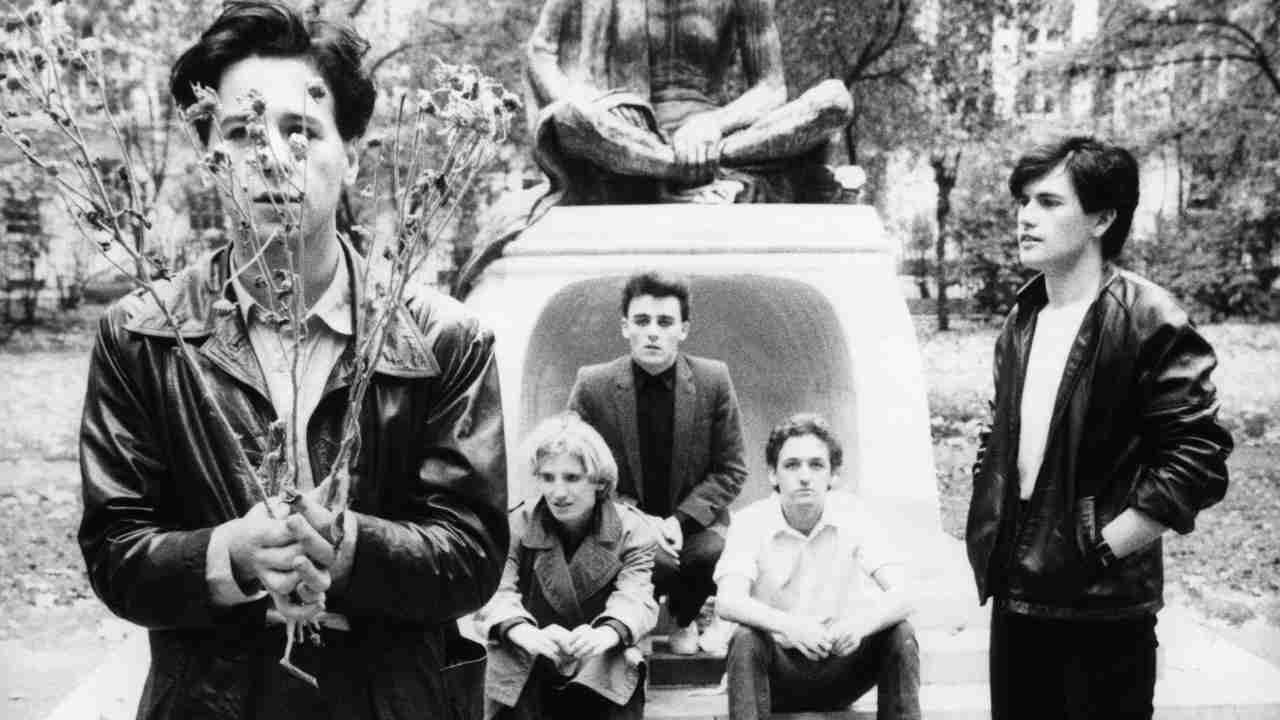
Compare and contrast with another of Simple Minds’ contemporaries, Echo And The Bunnymen. A band at least as gifted musically, but so crippled by cool that they couldn’t be bothered to reach up and grab the glittering prize, and sat there waiting for it to be lowered into their lap. To cap it all, Bunnymen frontman Ian McCulloch frequently vented his sarcastic spleen on Simple Minds and U2 as both sped by them en route for the arenas and stadiums.
“I think it comes from the kind of people you are,” Kerr offers, effortlessly refusing to rise to the bait. “Some of the guys in the Bunnymen I knew hated touring. And you could see it, because some nights they would be good and some nights they would be awful. Ultimately, at that level a bad gig is unacceptable to an audience; they won’t come back, and they’ll tell their mates.
“I think U2 took a more stoned approach to it, while we tended to treat it more like the European Cup: it’s there, we’re gonna take this; so we’re gonna play this festival in Holland, we’re gonna get on the bill and we’re gonna make the biggest noise. That was our attitude.”
That’s certainly not cool. It is, however, ambitious – arrogant, even. “That’s true,” Kerr agrees. “And you can try too hard; you can come a cropper. You can be too keen. We certainly had our moments.”
But Simple Minds’ attitude surmounted their ‘moments’, and propelled the band to the top flight of stadium rockers by the latter half of the 80s.
As a teenager, Jim Kerr consumed rock music avidly through the first half of the 70s, courtesy of the Glasgow Apollo. “I had a ticket to see Bowie on his Ziggy Stardust tour, but I trod on a needle on the day of the show and my foot swelled up like a balloon. So the first gig I saw was Genesis on their Foxtrot tour. And the physical thing of hearing that volume and seeing the lights and stuff… I’m not exaggerating when I say that I knew my life was about to change.
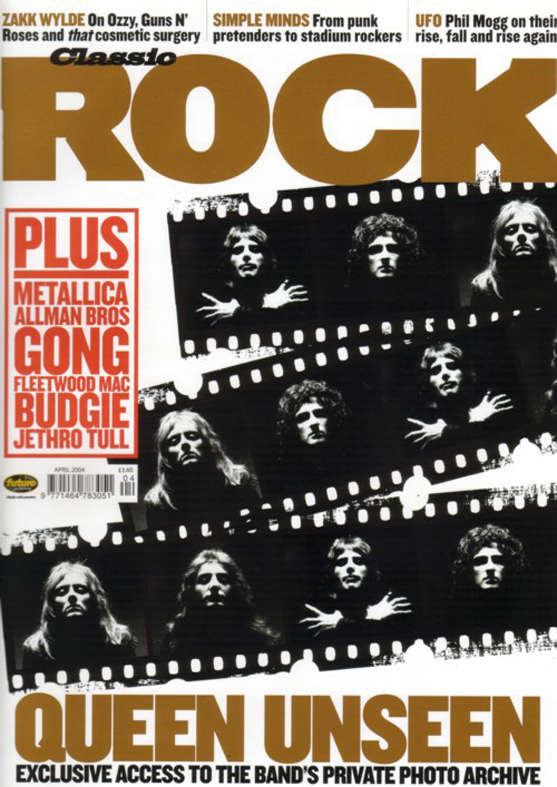
“In the months afterwards I saw Roxy Music and Bowie’s Aladdin Sane tour, and I was aware that this other world existed – not just of music, but of exotic art and lifestyles. But it was all a subculture. There was no MTV, no pop columns in the dailies. When I saw Bowie I didn’t know about him taking Andy Warhol and Jean Genet and Lou Reed and making something new out of it. I didn’t know about any of that, it was just, ‘He’s from Mars’. The language, the clothes, the attitude, the sexuality… I’d just never seen it. Anywhere.”
But Kerr learnt quickly, and his special vantage point at Glasgow Apollo taught him something else that was to prove valuable later: the ‘big gesture’.
“A friend’s brother was a security guy there, and he’d sometimes sneak me into the balcony. Up there it was like, ‘They don’t know I’m here’. But Freddie Mercury knew you were there. Alex Harvey knew you were there. Steve Harley knew you were there. Lou Reed was stoned and wouldn’t know anything. And the Eagles wouldn’t care; but then they were about something else.”
Kerr and Charlie Burchill, who’d been mates since the age of eight, decided to form a band while they were hitch-hiking through Europe, a trip that confirmed to them that there was more to life than Glasgow. And because it was 1977 it was obviously going to be a punk band. Johnny & The Self Abusers? That’ll do nicely.
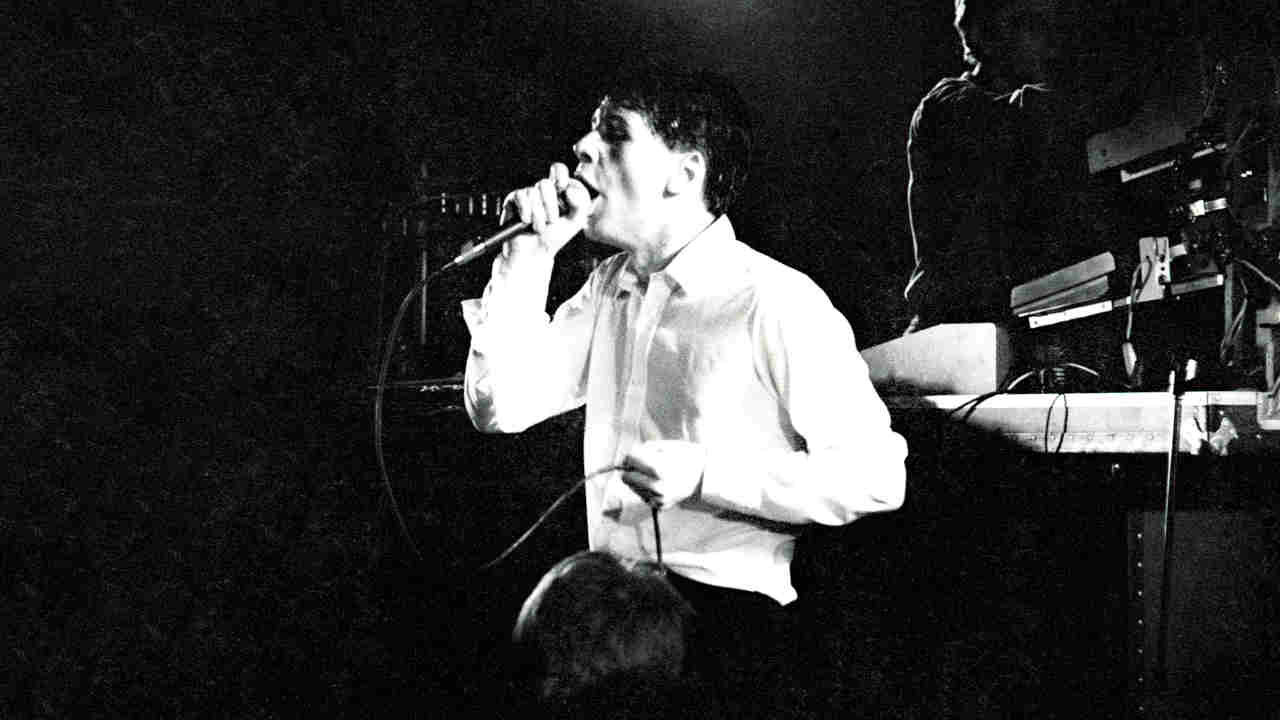
“We’ve always been opportunistic as a band,” Kerr says. “I wasn’t one of those kids who hated everything that had been going on. I mean, if Pink Floyd or Genesis had a new record out then I was interested. But where punk really hit the mark for us was the live music scene in Glasgow, which was really laconic, lazy; there were endless bands playing Wishbone Ash covers.
“I’d been brought up on music that had a different level of creativity. And while I knew that Little Feat were a great band, I needed more than that. I needed stuff that was mysterious, enigmatic. And when I heard punk it was, ‘Oh, right, there’s something we’ve been missing here’. It was that primitive element.
“There was a lot of dross in punk, but those first records that we heard were really fucking good: Patti Smith, Television, Talking Heads, The Sex Pistols, The Stranglers. The whole thrust of the thing, and the fashion. To me it was coming out of groups that I knew like The Tubes and The New York Dolls.
“So punk wasn’t a stretch for us. And what I liked about it was not so much the Malcolm McLaren stuff about anarchy that all that, but more the Lou Reed school of ‘get up there and do it’. It was, ‘Get your mates and make a noise’.”
In the true spirit of punk, the six-piece Johnny & The Self Abusers split up on the day their only single, Saints & Sinners, was released by Chiswick Records. Half of them headed back to the 60s to form the Cuban Heels, while Kerr and Burchill took a more experimental route with Simple Minds, taking the attitude of the new wave and blending it with the melodic sensibility of art-rock faves like Roxy Music.
It took the emerging Simple Minds a while to achieve a settled line-up. They were on the third one by the time they played their first gig, and there were more changes before they got a record deal with Arista at the end of 1978. “Most of them were forced on us,” Kerr explains. “For three years we had very little success and therefore very little money. And as much as Charlie and I and some of the others were committed, others were perhaps not so committed.
“Actually we got off to a really good start. We wrote these tuneful, pop-oriented songs like Life In A Day and Chelsea Girl. We did some demos, and I hitched down to London and dropped them off at various record companies. Within a couple of weeks the phone started ringing and it was, ‘Come on down to London.’ We’ve got you a support slot with The Only Ones’ or whoever. But I’d refuse and say, ‘We’re from up here, and this is where we play, and if you want to see us you’ll have to come up here’. That was kind of unheard of back then. But it worked. We had a Sunday residency at the Mars Bar Club, and we’d been making tapes for friends, so when these A&R guys came up they saw us in this tiny place with about a hundred people all going nuts.
“And we were pretty good by then. We couldn’t really play, but we had lights and everything; we had girls and singers. Our first review in the NME said we were ‘destined’. I think we gave off this vibe of, ‘We’re taking all the good stuff here; we’re taking Television and Magazine and even a bit of Cockney Rebel’.”
With half a dozen record companies interested, Simple Minds signed to Arista. “It was all very exciting at that stage,” Kerr recalls. “We went into Abbey Road studios with John Leckie, which for us was incredible. I mean, we didn’t really know what a producer did, but his name was on all these records that we liked, like XTC and Magazine.
“So there we were in Abbey Road, straight down from Glasgow, and it was suddenly, ‘What is all this?’ But the record just wasn’t there. It was stillborn. In hindsight someone should have said, ‘Your Glasgow demos sounded great. Do your record in Glasgow’.”
Simple Minds’ first album, Life In A Day, peaked at No.30 in April 1979; the title track single failed to register. “Everyone was saying it was a sure-fire winner. We’d even got a spot on The Old Grey Whistle Test on the strength of the demos. So we were left with our tail between our legs,” the singer recalls. “It looked as though we’d been hyped; but we weren’t Secret Affair, you know, we hadn’t come along as part of some new movement. We had something, but it wasn’t on the record. We never had a dilemma about the influences we were taking, because we knew we could make something out of them. At least our second album was scrambling for a vision. If people liked it, it was by default. It became enigmatic, it was this, it was that.
Actually, that record – 1979’s Real To Real Cacophony wasn’t anything in terms of the chart, although ironically the media, who had been smelling a hype, suddenly decided that an album so non-commercial simply had to be ‘visionary’. More significantly, Simple Minds were building a reputation as a live band.
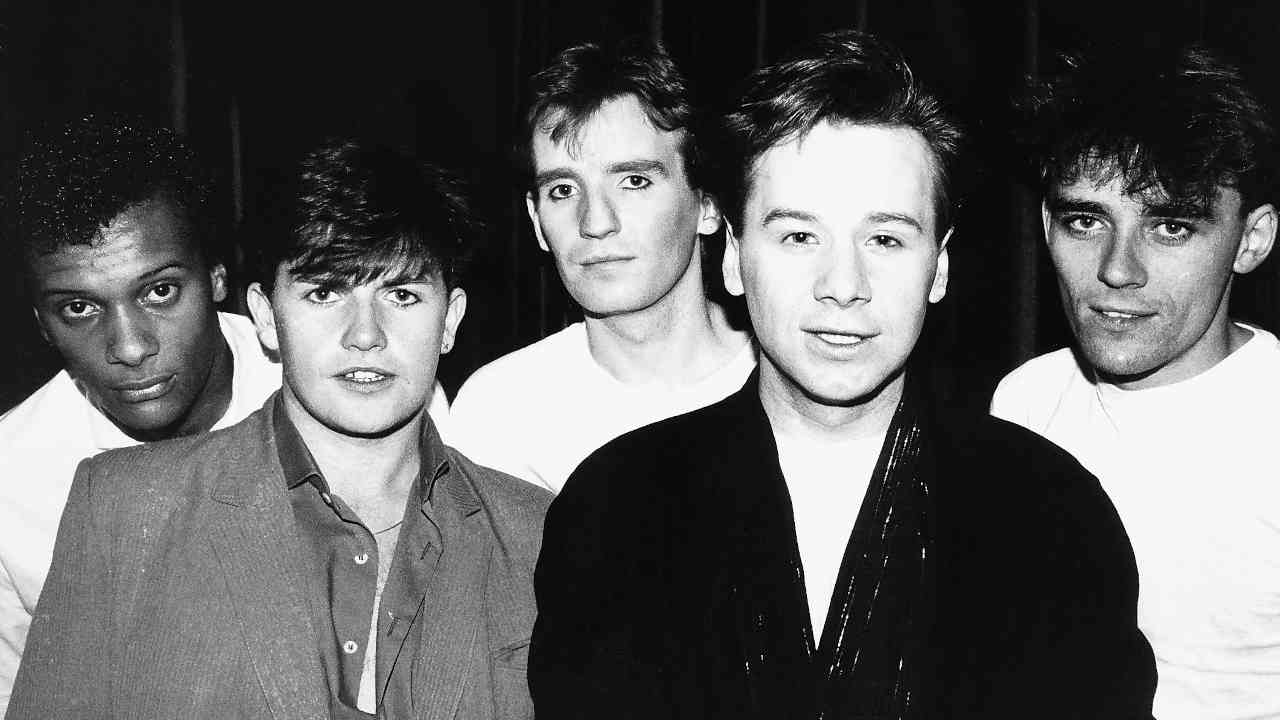
“Nothing was happening sales-wise, but live we were making an impression,” Kerr says. “We were learning our trade, getting better at it night after night. Promoters were instantly booking us back and we’d be doubling the numbers.
“And then Sounds started publishing this New Romantic chart every week, and suddenly we’re in at number five because Rusty Egan’s playing a new mix of one of our tracks. Obviously there was that whole Bowie/Roxy axis with the New Romantic thing, albeit with a Donna Summer disco beat or a Giorgio Moroder synthesiser, not to mention bits of Kraftwerk and Eno and so forth.
“All of those were our influences too, but it was already in the music rather than us going, ‘Oh, here come the New Romantics, let’s jump’. In fact it was actually tracks from ‘Real To Real…’ that were being played in those clubs, probably because they sounded like something from Bowie’s Low or ‘Heroes’.”
“So although we did sit with the New Romantics, our influences were more diverse than that. And like all of them, I guess, we tried to pose. But we weren’t that good at it; we’re too open to be cool. But we had a punch, a rock’n’roll punch. We might not have had a ton of slapstick on our faces, but we would get the Thin Lizzy crowd because there were two or three songs that were just wallopers. Maybe that’s why we sometimes appeared to have one foot in something and yet not be totally committed to it.”
So Simple Minds sat with the New Romantics without ever paying their subscription fees, while they continued to search for an identity of their own. And while videos of the time exhibit some fashion crimes, they are nowhere near the disasters perpetrated by the likes of Duran Duran and Spandau Ballet.
The Empires And Dances album in 1980 showed more promise, but the double Sons & Fascination/Sister Feelings Call the following year was the first album their live following could identify with as the band wrapped their dance, funk and electronic pop around a defined groove. The album reached No.11 and The American, Love Song and Sweat In Bullet became stand-out live songs. But Simple Minds’ breakthrough came with New Gold Dream (81-82-83-84) in late 1982.
“That’s when things came together,” Kerr offers. “The alchemy worked. We grew out of our influences into something that was us. It was Simple Minds, it wasn’t Ultravox or Roxy Music or whatever.”
The surprising thing was that the band’s identity was solidifying even as their line-up underwent more upheavals – something that has been a regular occurrence throughout their career. New Gold Dream was recorded with three drummers, including Kevin Hyslop (ex-Skids), whose small but significant contribution was to give Promised You A Miracle the oomph that helped it into the Top 20. That track opened up the airwaves, and The Glittering Prize and Someone Somewhere In Summertime took advantage.
Throughout 1983 New Gold Dream stayed in the UK album chart, and fanned out across Europe as well as making inroads into America. Simple Minds toured after it relentlessly, pausing only to hook up with producer Steve Lillywhite. The first fruits of their collaboration, Waterfront, ended the year on a high for the band, and the Sparkle In The Rain album early in 1984 yielded more of the arena-size hits that reflected Simple Minds’ growing stature.
“We were getting better and better,” Kerr recalls. “We were playing our arses off everywhere. We were going to Australia, South America, and every night we were killing the audience.”
The secret to their cracking America was more touring, backed by heavyweight radio promotion. But by late 1984 the band were getting frustrated, because although they’d fulfilled their half of the bargain, despite having moved to Virgin Records they couldn’t get Waterfront, Speed Your Love To Me or Up On The Catwalk away as singles.
“We were pissed off because Sparkle In The Rain was doing well everywhere, but in America we were still on the college circuit,” Kerr says. In fact they were so pissed off that when the gift horse did eventually show up the band did their best to kick it in the mouth.
“After the tour the record company apologised for not getting behind us. They said: ‘You were right, we were wrong. We didn’t see it, but now there’s a momentum there and we need something new from you now’. And we were going, ‘Too late, we’ve been touring for fourteen months and we haven’t got anything. You’ll have to wait for the next album’.
“We were quite arrogant with them. But they came back a month or so later and explained about this movie called The Breakfast Club, and Keith Forsey, who’d done the music for Flashdance, apparently had a song for us. We said: ‘What do you mean? We write our own songs’. And they were going: ‘He really wants you to do it, and it would be good for you’. But we were just: ‘Fuck off, no chance’. It went on like that for weeks.
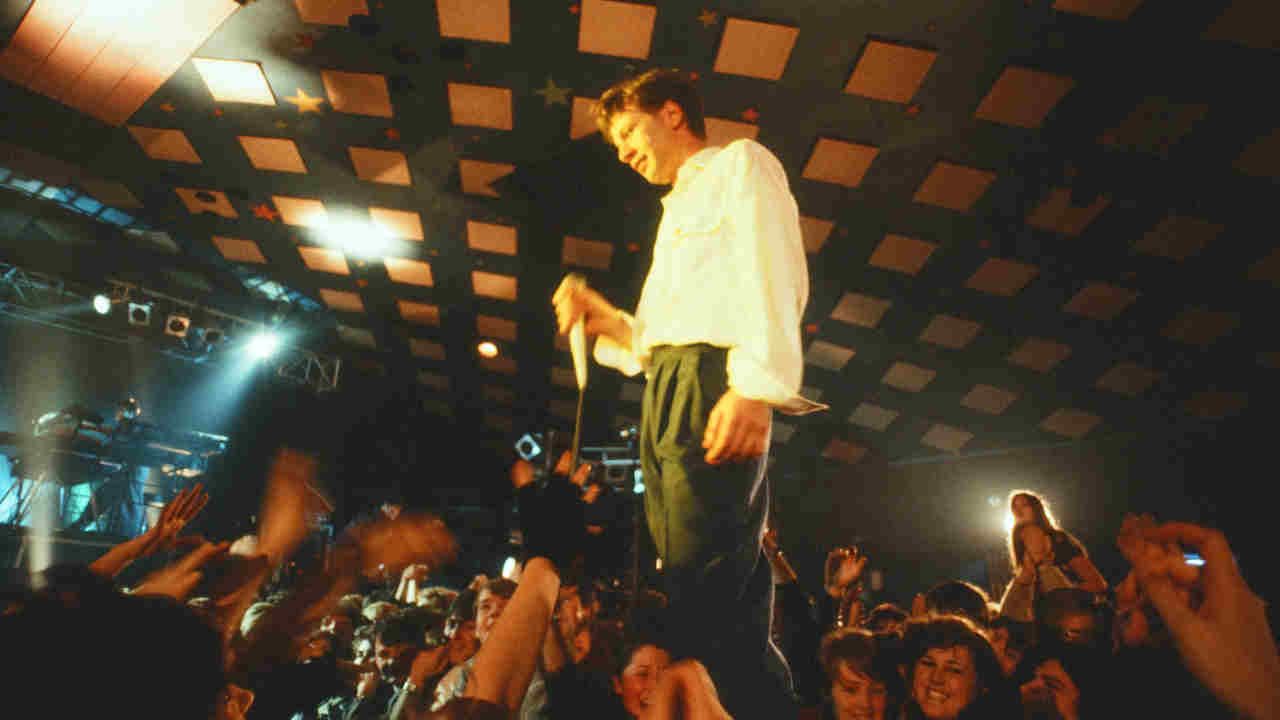
“Meanwhile, the record company is pleading with us and Keith comes to see us while we’re writing songs for the next album and says: ‘Please, give it a shot’. They’ve got some duff studio out in Wembley booked in a couple of days, we didn’t really like his song, and I’m going: ‘I can’t relate to the words. I’m going to write them again’. But I was so disinterested I didn’t get round to it. I just thought, if we go in and do our bit, it’s not going to happen and we can all move on. So we went in, added the intro and other bits, and the track sounded great!
“Then we thought it [Don’t You (Forget About Me)] would just be part of the soundtrack, but of course it becomes the main song. And not only do they release it as a single, it goes to number one. We called it The Black Hit From Space, after that track on The Human League’s Travelogue album, about a song that arrives from nowhere and takes over the world
The second part of Simple Minds’ 1985 double whammy came in July when the band appeared at Live Aid in Philadelphia and, just like Queen and U2 at the London leg, made the most of their 20 minutes of unprecedented global exposure. Bob Geldof reckons they were the best performance to come out of the American show. And the result was that the band made that transition from arenas to stadiums.
“The thing about Live Aid was that not only did audiences see it but promoters saw it as well. And they came to bands like us who could fill two or three nights in an arena and put together a stadium package. But Live Aid made you realise something else: that the audience is the star. When they get together and do that wave thing, corny as it is, they were saying: ‘We’re going to add our bit’.
“When we did a stadium tour with all these screens behind us, every time we showed the audience they went mental. And I realised: ‘This is about them’. However many gigs they’d been to see that summer, this was their Cup Final.”
Once again Simple Minds delivered the songs to go with their elevated status. 1985’s Once Upon A Time album delivered four more hits to echo round the stadiums: Alive And Kicking, Sanctify Yourself, All The Things She Said and Ghostdancing, the latter played at Live Aid and dedicated to Amnesty International, for whom they played some benefit shows later that year.
Indeed, it wasn’t until they got to the stadiums that their social conscience started to kick in, with much of that conscience being directed against the South African apartheid regime that had kept Nelson Mandela incarcerated for over a quarter of a century. Simple Minds were among the first to sign up for the Nelson Mandela 70th Birthday Tribute at Wembley Stadium in June 1988, writing the stirring Mandela Day for the occasion. They also raised £40,000 for underprivileged children from three shows at the Glasgow Barrowlands at the start of 1989. And the title track of 1989’s Street Fighting Years album was dedicated to Chilean poet and writer Victor Jara, who was murdered in prison by “right-wing scum” General Pinochet and his henchmen.
Street Fighting Years was an unabashedly political album, nowhere more so than on Belfast Child, which gave them their only UK No.1. “I was brought up to take a view about these things,” Kerr says. “It was natural to us, and we were inspired by the likes of Peter Gabriel and Robert Wyatt, who were doing great music with questions at its heart. If you have any kind of career at this level there’ll be a time when you write about what you perceive as the issues of your time. I’m from Glasgow, but my father’s family are from Northern Ireland. And Belfast was always in the news. ”
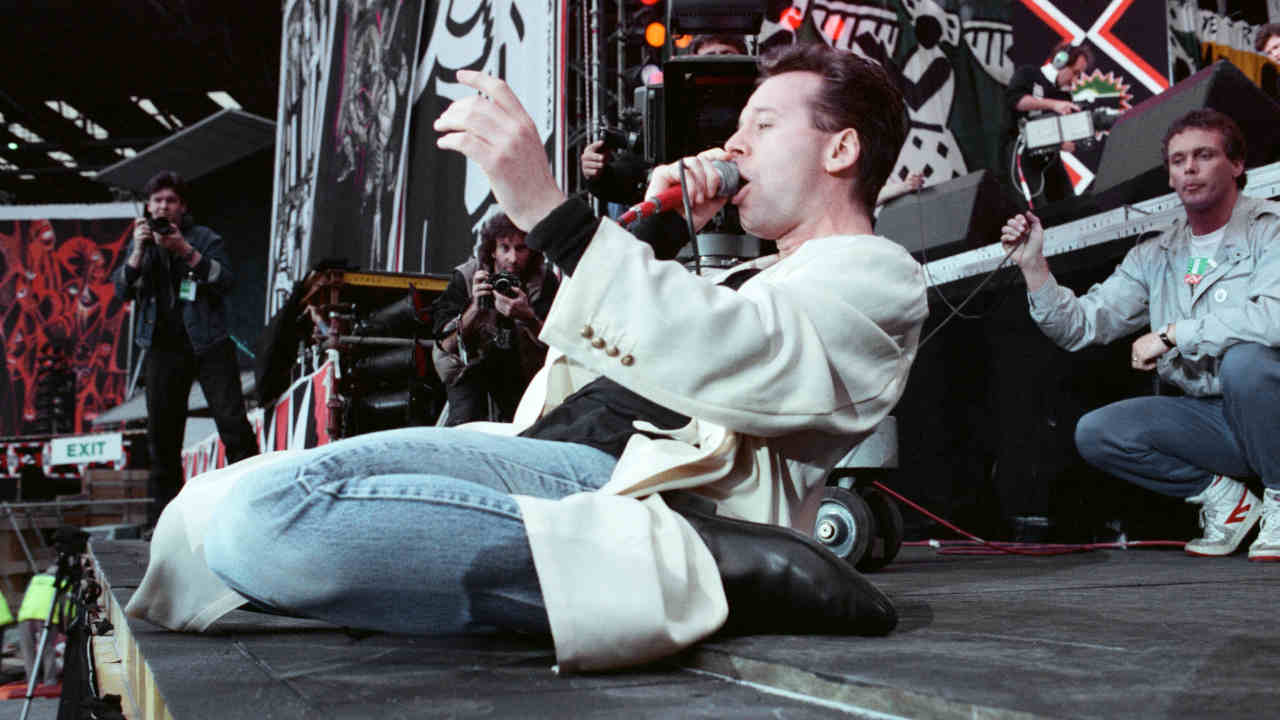
Another series of line-up changes at the end of the decade left Simple Minds down to a core of Kerr and Burchill. But that was scarcely news to anyone who’d perused their album sleeves during the 80s. And they picked up in the 90s where they’d left off, playing at Nelson Mandela’s freedom bash at Wembley Stadium, and in East Germany soon after the Berlin Wall had come down.
It would be another year before they released their next album, Real Life, but by the end of the world tour that followed Simple Minds were starting to feel jaded. And while they were still doing well in Britain and Europe, in America the returns were diminishing. After 15 years of relentlessly driving onwards, the strain was beginning to show, although they never fell victim to any of the obvious vices that can turn a band into road monsters.
“Well, it came close, but I don’t think we came a cropper over any of the potential pitfalls,” Kerr says. “The major pitfall we actually came a cropper over – and the only one I’d change, given the chance – was thinking there’s endless energy. But there’s not. Once it starts happening, and you’re making money for everyone, you just keep running. And suddenly it’s five years down the line without stopping.
“We were never complainers, though. We liked the work and we liked the lifestyle. We loved what it gave us. But there’s that point where you’ve reached it; you own the jumbo jet, but you’ve not got any fuel. And you know it. And that’s terrifying.”
There is, of course, plenty of artificial fuel around to lighten the load. “Yeah, but in my case I realised it was an artificial culture. When my daughter was born I think it changed me. Up until then I’d have paid you to let me do what I do. It was just as we were hitting the jackpot, and I realised I was responsible for someone other than myself. And I realised that I wasn’t going to see her. This whole thing was taking off. We couldn’t put the brakes on it now, the least I could do was to make sure we got the max out of it.
“Two weeks later, on tour, being in a room with a bunch of jerks – part and parcel of the whole thing – and I’m thinking: ‘Who are these creeps?’ My perspective had changed. And that’s when I got more… whatever you want to call it… corporate, career-minded, whatever. I mean, it’s all manageable until you try to have a life outside it, and then it gets tricky.”
The second half of the 90s was certainly tricky, particularly after 1995’s Good News From The Next World. Kerr divorced Patsy Kensit and Simple Minds divorced Virgin. The band signed to Chrysalis, but 1998’s Neapolis (which saw the return of bassist Derek Forbes and drummer Mel Gaynor) seemed unsure of whether it was going backwards or forwards. Another album, Our Secrets Are The Same, got shelved after record company pre-millennial tensions (it eventually emerged on Silver Box, a box set of early demos, rarities and other previously unreleased material) and they didn’t really get back on track until they’d switched labels again, to Eagle Records, and confronted their influences on the covers album Neon Lights, which included songs by David Bowie, Patti Smith, Roxy Music, The Velvet Underground and – ahem – Echo And The Bunnymen. Now there’s a perspective, where before there was just a blinkered look forwards.
“It’s almost a wilful denial at times,” Kerr admits. “It’s that thing of being there, in the moment, self-consciously contemporary, looking at your peers. All that stuff. But actually, what a luxury it is to be able to go out and play to an audience that does know your catalogue. At the same time, the reason we’re making another record is that we know we’re going to be playing live again, so we’ve got to come up with some new stuff.”
“When we began this period of activity it felt right and credible to be nostalgic. After all, we do have a story to tell. Why should we shy away from that?”
Originally published in Classic Rock issue 65 (March 2004)







